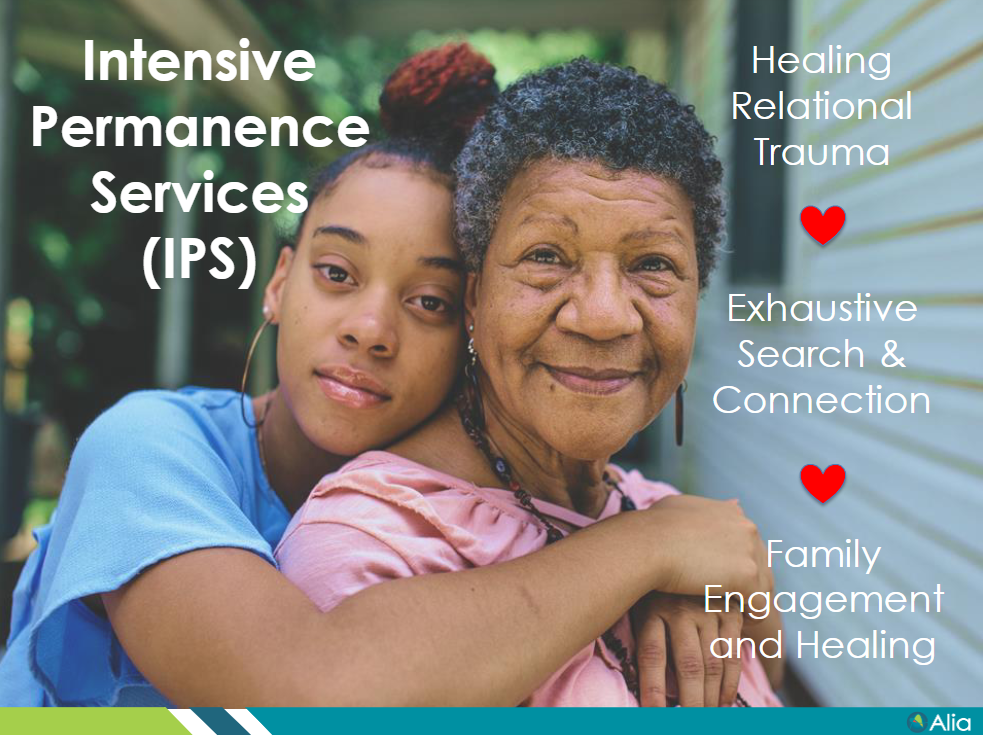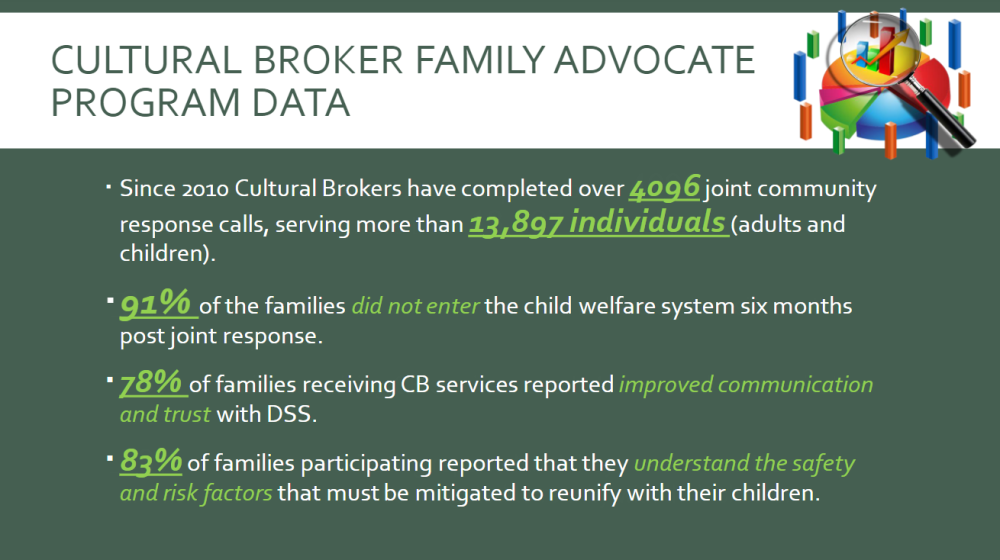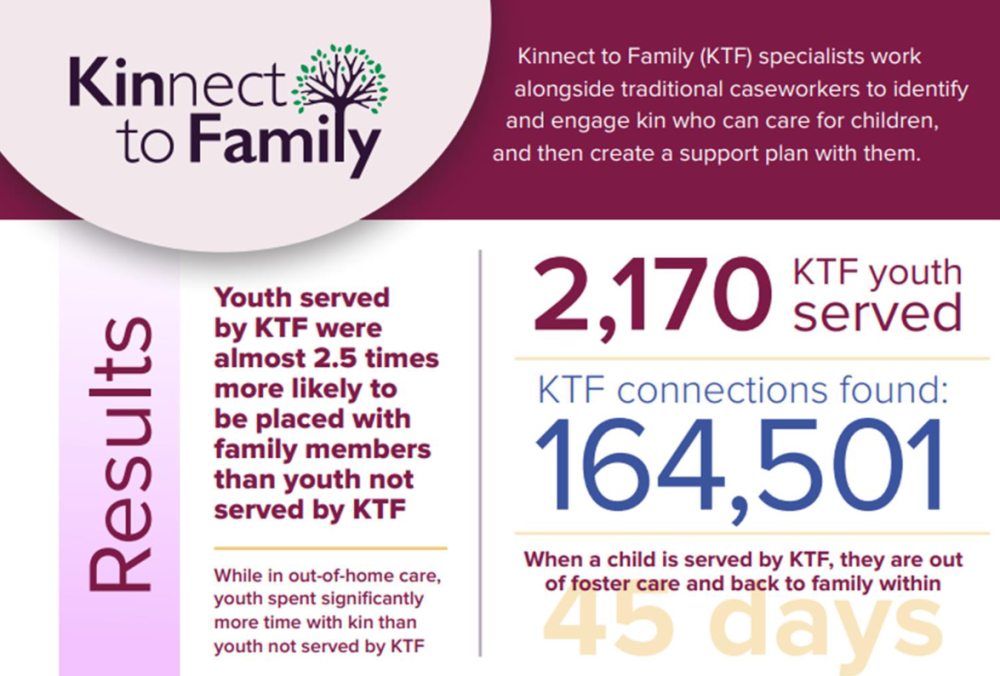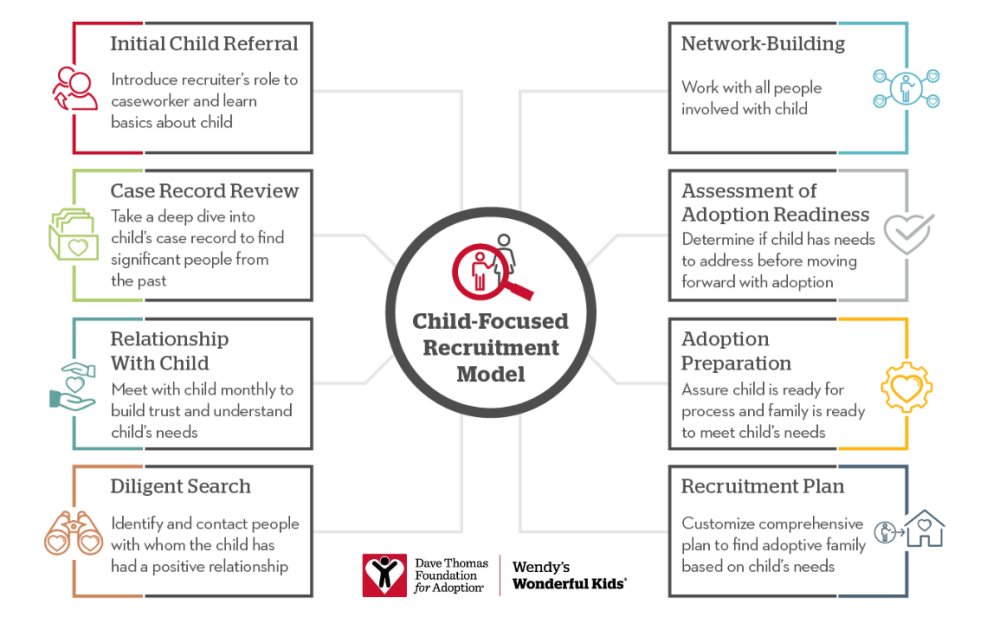
Kin-first Systems Spotlight: Model Programs
Imagine, as a child or youth, being guided by someone you don’t know to their car, to be driven to the house of someone you don’t know. You are told this is where you will stay. When you ask how long that will be you are told “we are not sure.” When you ask when you will be able to see your family again, you are told “soon.” What comes up for you imagining this scenario?
The experience of being removed has often been described similarly to the feeling of being kidnapped. At best, it is overwhelming, invokes fear, uncertainty and confusion. The mission of the California Department of Social Services is to serve, aid and protect needy and vulnerable children and adults in ways that strengthen and preserve families. However, it’s widely recognized that many families, children and youth experience these values differently than intended. A harsh reality we must contend with is that intervention of the child welfare and probation systems brings its own harms. Despite this, the described reality continues to be true for thousands of children and families in California.
A transformation of our system to one that is kin-first, kin-always, is imperative to address these harms. All children and youth deserve the immediate comfort of going to live with someone they know, where they feel a sense of belonging and connection. These needs are crucial for their physical, relational, emotional and cultural well-being.
“Children do not need a family; they need their family.”
- Dr. Jessica Pryce
The Center for Excellence is funded by the California Department of Social Services (CDSS) through the Excellence in Family Finding Engagement and Support (EFFES) Program. This initiative provides financial support to County Welfare Departments, County Probation Departments and Tribes to develop or enhance their family finding, engagement and support efforts. Specific spending requirements apply, and additional information on these requirements and how to opt in can be found in the resource section below. One of the spending requirements permits the implementation of a model program service focused on family finding, engagement and support. The Center for Excellence and CDSS have identified six select model programs for this purpose.
“A child’s need for an uninterrupted sense of love and belonging is necessary for healthy development, however our current child welfare system was not built on this foundation. Let’s rebuild together”
- Alia

Alia Innovations is a nonprofit “do-tank” founded in research and family voice to support innovative system leaders to help redesign child welfare by equipping leaders in agencies with the support needed for systems change. Alia partners with early adopters and innovators in the field of child welfare to dramatically improve outcomes for youth and families and to create meaningful, sustainable change. They help communities and agencies explore the right questions to solve the right problems.
Moreover, Alia Innovations provides specialized Intensive Permanency Services (IPS), focusing on finding youth permanency through a healing, kin-first approach. IPS promotes the healing of relational trauma and utilizes exhaustive search tools to establish connections in their family finding and engagement work. Youth and family drive this work, and the IPS workers serve as the healing guides. This program restores youth autonomy and ensures the whole family unit experiences healing, connection and support.
To learn more about Alia Innovations and their Intensive Permanency Services, click here.
“We believe in every child growing up in a safe, loving and nurturing environment, and in healthy family life being affirmed and supported in our communities. We are committed to helping children and families succeed.”

Catholic Community Services of Western Washington (CCSWW) provides consultation and support for private organizations, non-profits, state and county jurisdictions implementing Family Search & Engagement (FSE). CCSWW FSE work is rooted in their belief that there is no more culturally relevant resource than family. FSE is a set of practices designed to locate, engage, develop and support family resources for youth. A major goal of FSE is to move youth from a place where they don’t hear, “I love you” to a place where they can hear it and feel it every day. This comes from family, relatives and others who love them. FSE partners with child welfare services expanding beyond family finding efforts focusing on engagement, with the intent to increase identity, belonging and permanency.
For additional information, please visit Catholic Community Services of Western Washington.

“Supporting the Power of Families to Strengthen Communities.”
Cultural Brokers is a non-profit organization that works with families involved with or at risk of being involved with the child welfare system. Cultural Brokers provides culturally congruent services, support and advocacy to parents and family members as they navigate the child welfare system. Cultural Brokers create partnerships between families and child welfare workers and help families navigate the system. This work is driven by the core belief that every family regardless of race, ethnic background or economic status will be empowered so that their own strengths and capacities are supported and developed. A Cultural Broker serves as a liaison, cultural guide, mediator and catalyst for change.
To learn more about Culture Brokers Inc. and their services, click here.
“If we’ve learned anything from our longest served youth, its that we can provide millions of dollars of service and they can become homeless adults within hours of aging out of care. Our purpose in Family Finding is to restore the opportunity to be unconditionally loved, accepted and safe in a community and family.”

Family Finding™, a framework developed by Kevin Campbell, is a practice that seeks to build or maintain the youth’s Lifetime Family Support network for all disconnected, or at risk of disconnection, system involved youth. The program is designed to locate, engage and involve kin in supporting children’s placement, permanency and well-being. The goal of the model is to increase options for children’s legal and emotional permanency using a structured model.
Family Finding services consist of: Family Finding workshops, coaching and consultation, strategic design consultation and curated project support. Their services are listed as a Level 3, Promising Research Evidence by the California Evidenced-Based Clearinghouse. Family Finding is supported with online access to practice manuals, development of internal staff and community partners, coaches and mentors authorized to provide local and internal training, support and practice supervision.
For more information please visit Family Finding and view the Family Finding: Data & Practice Review of the Literature.
“Every child has family. Finding and supporting them changes everything.”

Kinnect is an Ohio-based nonprofit dedicated to ensuring permanent families for all children in the shortest time possible and connecting those families with individualized support to meet their unique needs. We do this through a two-pronged approach. Kinnect to Family (KTF) programs focus on urgent family search and engagement to identify affirming caregivers for young people and put youth at the center of achieving permanent family. OhioKAN programs focus on connecting those families and youth with services and resources to meet their needs.
Kinnect to Family, is a specialized, intense family search and engagement program that uses diligent search strategies to identify a vast array of connections for children and families involved in with child welfare. Search efforts have resulted in at least 70% of children served are placed with kinship caregivers by the conclusion of services and children are placed within 30 days of entering foster care.
For additional information, please visit Kinnect to Family.
“Every child deserves a safe, loving and permanent family. No child should linger in foster care or leave the system without a permanent family.”
Wendy’s Wonderful Kids, a program of the Dave Thomas Foundation for Adoption, a nonprofit public charity that is committed to dramatically increaseing the number of adoptions for children waiting in North Americia’s foster care. Wendy’s Wonderful Kids program, established in 2004, supports the hiring of adoption professionals, known as recruiters, who are dedicated to finding permanent families for children in foster care who are too often overlooked. That includes teenagers, children with special needs and siblings. Wendy’s Wonderful Kids recruiters use an evidence-based, child-focused recruitment model to make sure they find the right family for every child. A rigorous, five-year national evaluation revealed that children referred to the program are up to 3x more likely to be adopted and in 2024, the foundation celebrated finidng permanent families for more than 14,000 children in foster care across the United States and Canada.

Wendy’s Wonderful Kids Child-Focused recruitment model center the child’s voice and is rooted in in the belief that the recruiter must understand the needs and lived experiences of the children and youth they serve. They respect the child’s voice, privacy and dignity. They are committed to building relationships with the youth they serve and help unpack any fears or misconceptions the youth has about adoption.
Recruiters explore many different relationships and consider them all for permanency; this includes biological family, any pre-existing relationships with the child or youth and consider if they may be potential adoptive families. If family reunification is a safe option, the recruiter will always explore this option. Lastly, the recruiters hold the belief that every child is adoptable. They work with smaller caseloads to ensure that every child receives the time, resources and support they deserve.
For additional information, please visit Wendy’s Wonderful Kids.
Resources:
To access and watch our Kin-First Model Program Series, visit our Center for Excellence Webinar Series.
